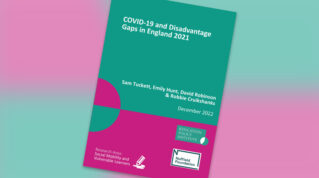A pilot for a longer learning period after GCSEs is worth considering post-Covid, writes Joe Hallgarten
When it comes to post-16 learning, it’s two that’s a crowd, not three. I’m talking about the two-year 16-to-19 phase. In reality it is about 20 months long.
A couple of weeks after their GCSE results, most students are in new institutions, making rapid decisions about, and rapid adjustments to, new types of courses, teaching and learning.
Less than two years later, here the next step comes, ready or not.
For those on a semi-cushioned, near-inevitable track to university, this rushed period might just about makes sense. Good enough GCSEs leads to a fairly straightforward set of A-level choices, which then leads to a university place (with maybe a gap year thrown in).
For the majority of students, it’s a more complex journey.
There are, of course, smooth routes into professions via technical qualifications. But many young people are much less sure about where their GCSEs should take them. Their career advice did not prepare them for the choices they need to make. They may not yet be developmentally ready for the independent maturity that most post-16 study requires.
With a manic September start, there is no time to “try before you choose”, and the need for many to retake English and maths GCSEs adds to this complexity.
They may start level 3 qualifications such as A-levels without understanding the extent of jump-up required, and many quit after a wasted year 12. Even if their A-level courses run smoother, they are also unclear about whether university is really for them.
At their best, post-16 institutions (and FE colleges in particular) handle this excess of choice, uncertainty and complexity brilliantly. They help their students navigate the best possible way into further work or study through both pedagogical and pastoral care. However, they do so in a time period that feels irrationally short.
Why the hurry? Lots of possibilities, most with big price tags, are currently being considered to aid “catch-up”. The tutoring programme is already rolling out. Officials are considering options to extend the school day and reduce summer holidays.
How about we extend our post-GCSE education period from two years to three? What could this look like? Here’s one way it could work.
In the autumn term of year one, students would be given a variety of experiences and advice to make sure they are choosing the right pathway for them and the right school or college to support this.
Some students would retake key GCSEs and consolidate other aspects of learning that will enable success in their chosen pathway.
In addition, each student would be assigned a mentor, ideally linked to a possible career choice. Where possible, each would also be allocated a year 7 child to mentor.
Each student would be assigned a mentor
Students would also begin a personal development project, as suggested in the proposed 14-19 national baccalaureate.
From January of year one, the next six terms would be similar to the current two-year period. Each young person would start a selected qualification pathway, with space for personal projects and mentoring.
Two years later by the end of February of year three, students would complete courses and examinations, with results announced by the end of April.
This would leave a few months’ space to complete personal development projects, and a civic national caring service programme ̶ a placement of approximately two months that gives them experience of caring within a nursery or school, care home or day centre, hospital or hospice.
No college or school could achieve an effective three-year extension alone. It needs the types of long-term civic partnerships with local employers, universities, voluntary and community organisations that FE colleges already foster.
This is a less than half-formed idea, which would have a financial cost. If you’re thinking “what about…?” then you aren’t the only one.
But the Centre for Education and Youth would love to create a coalition of partners who can help us interrogate this idea further, perhaps through an actual pilot.
If we believe that Covid recovery requires radical solutions, one more year of compulsory education may well be worth considering.

















Your thoughts